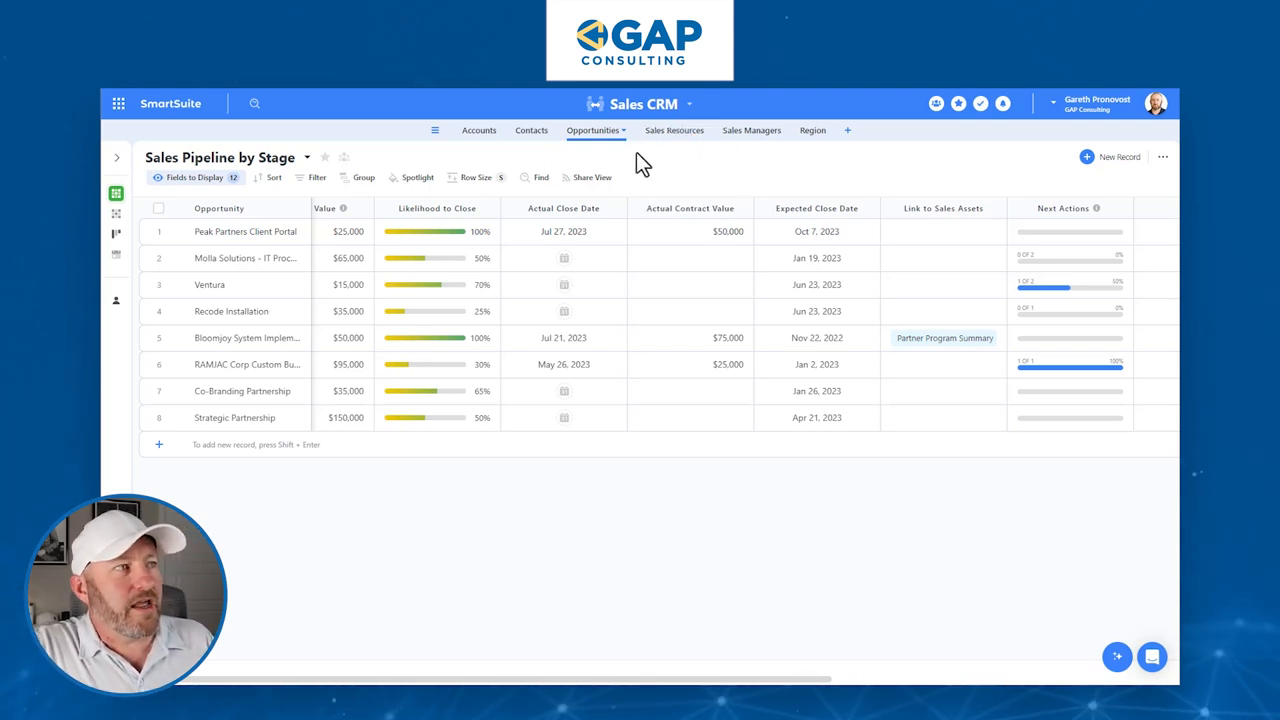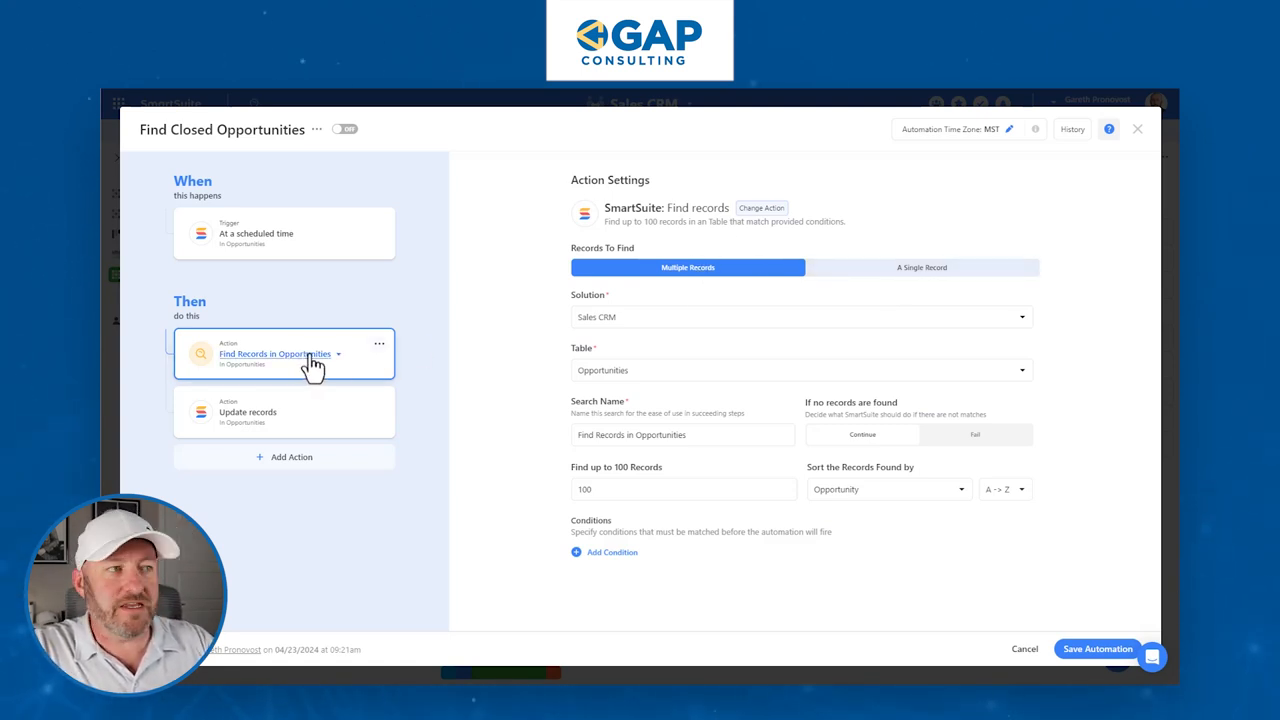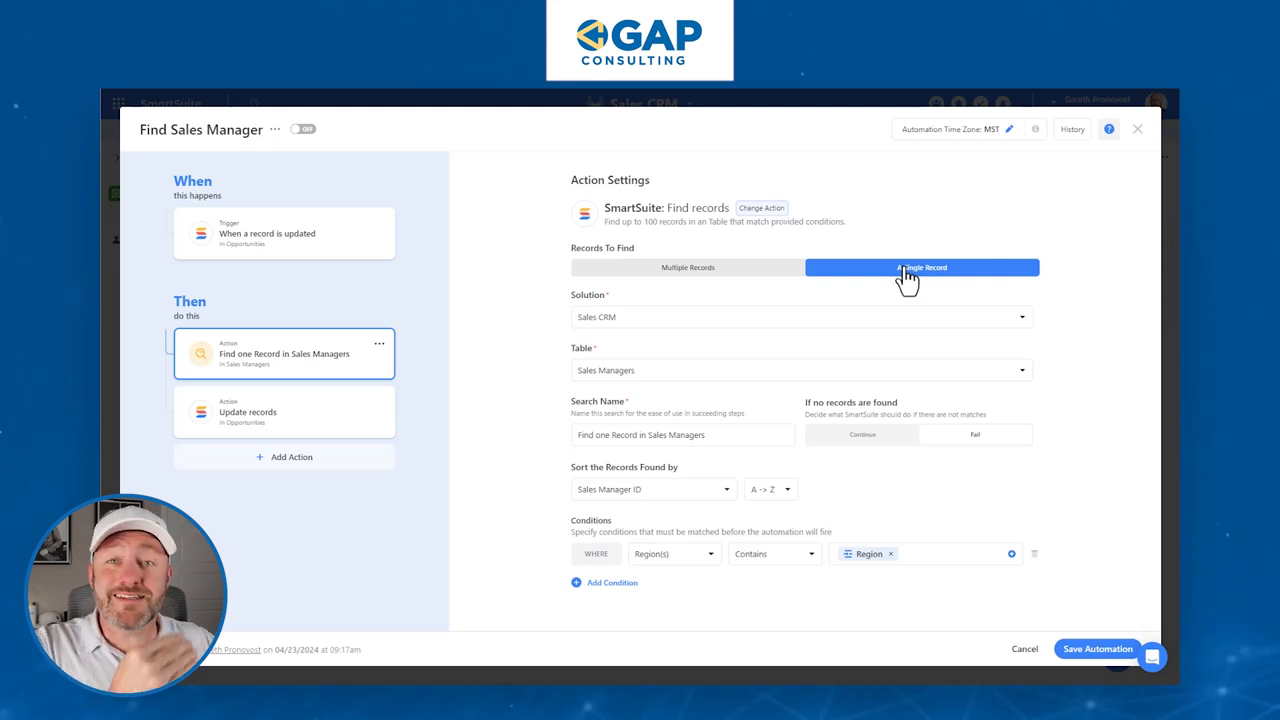Are you ready to take your SmartSuite automations to the next level? In this blog post, we'll dive deep into the find records action and show you how to unlock its full potential. By the end of this post, you'll be a pro at using find records to supercharge your workflows and save countless hours. Let's get started!
Introduction to SmartSuite and Find Records
If you're new to SmartSuite, it's one of our favorite no-code tools for building powerful automations. With SmartSuite, you can create custom apps, databases, and workflows without writing a single line of code. And one of the key features that makes SmartSuite so powerful is the find records action.
Before we dive into the nitty-gritty of find records, let's take a quick look at the example we'll be working with throughout this post.
The Sales CRM Example
For this post, we'll be using the Sales CRM template in SmartSuite. This template includes tables for opportunities, regions, and sales managers. Here's a quick overview of each table:
- Opportunities: This table contains information about potential deals, including the stage of the deal (e.g., closed won), the actual close date, and the region associated with the deal.
- Regions: This table contains a list of geographic regions (e.g., North America, South America, Asia, Europe) and is linked to the opportunities table.
- Sales Managers: This table contains information about each sales manager and is linked to both the regions and opportunities tables.
With these tables set up, let's look at two examples of how we can use the find records action to automate common tasks.

Example 1: Finding Closed Opportunities
In this example, we'll create an automation that runs every Monday morning and looks for all opportunities that have been marked as "Closed Won" but don't have an actual close date. Here's how it works:
- Create a view in the opportunities table that shows only the stage and actual close date fields.
- Create a new automation and set it to run on a schedule (e.g., every Monday at 9:00 AM).
- Add a find records action and set it to find multiple records.
- Set the conditions for the find records action:
- Stage is equal to "Closed Won"
- Actual Close Date is empty
- Add an update records action and set it to update the records found in the previous step.
- Set the update records action to fill in today's date in the Actual Close Date field.
- Save and turn on the automation.

Now, every Monday morning, this automation will find all opportunities that have been marked as "Closed Won" but don't have an actual close date, and it will fill in today's date for those records.
Example 2: Finding Sales Managers
In this example, we'll create an automation that runs whenever an opportunity is marked as "Closed Won" and finds the sales manager responsible for that region. Here's how it works:
- Create a new automation and set it to trigger when a record is updated.
- Add conditions to the trigger:
- Stage is changed to "Closed Won"
- Region is not empty
- Add a find records action and set it to find a single record in the Sales Managers table.
- Set the condition for the find records action:
- Region is equal to the region of the updated opportunity record
- Add an update record action and set it to update the original opportunity record.
- Set the update record action to link the sales manager found in step 4 to the opportunity record.
- Save and turn on the automation.

Now, whenever an opportunity is marked as "Closed Won," this automation will find the sales manager responsible for that region and link them to the opportunity record.
Tips for Using Find Records
Here are a few tips to keep in mind when using the find records action:
- Multiple vs. Single Records: When setting up a find records action, you have the option to find multiple records or a single record. If you choose to find multiple records, you can update those records in a subsequent step, but you can't use the information from those records in other actions. If you choose to find a single record, you can use the information from that record in subsequent actions, but you can only update the original record that triggered the automation.
- Relative Dates: When updating date fields, SmartSuite allows you to use relative dates (e.g., today, yesterday, one week from now). This can be handy for automations that run on a schedule or need to calculate dates based on other dates.
- Linking Records: When updating a record, you can link it to records in other tables by using the record ID. This is a powerful way to connect related records and build complex workflows.
The find records action is a powerful tool for building automations in SmartSuite. By using find records, you can search for specific records based on criteria you define and then use those records in subsequent steps of your automation. Whether you're finding multiple records to update or a single record to link to another record, find records can help you save time and streamline your workflows.
To experience the future of work management firsthand, start your free SmartSuite trial today!
















.jpg)




